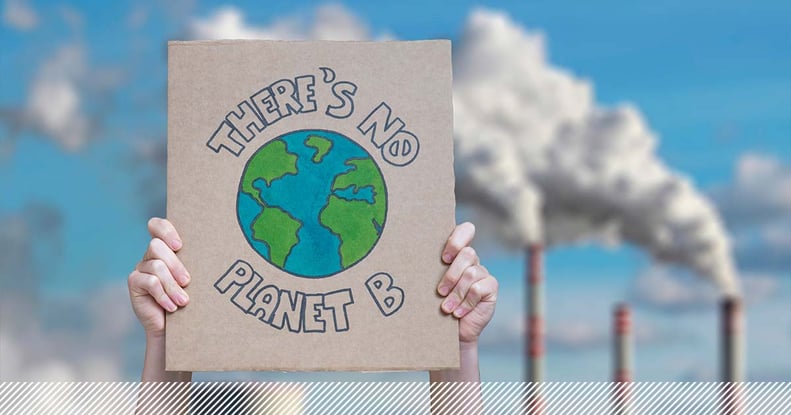4 of top 8 actions to avoid climate change relate to food waste prevention

The latest report from the Intergovernmental Panel on Climate Change added further urgency to addressing the environmental crisis, predicting catastrophic temperature increases by the 2030s unless immediate action is undertaken.
The report highlighted those eight key activities, four of which are related to food waste prevention.
1. Reduce methane emissionsMethane does not remain in the atmosphere as long as carbon dioxide, but its ability to trap heat is much greater than CO2. Methane is also the primary gas released when food waste decays. The IPCC reports that cuts in GHGs, with a priority placed on methane, could cut more than half a degree from global warming.
2, Halt deforestation
The vast expanses of vegetation in the world’s forests and especially its rainforests act as carbon sinks. The more forest we lose, the more carbon that is left in the atmosphere to act as heat trapping gas. A total of 9.7 million hectares of land are deforested every year to grow food. By reducing food waste, we reduce the need for more food production.
3. Stop converting other land to agriculture
Other important carbon sinks, such as wetlands and peatlands, are being drained and converted to agriculture. An enormous amount of that agricultural land–an area larger than Canada, in fact–is used to grow food that simply goes to waste. By preventing food waste, we encourage sustainable land use.
4. Change the food system
Finally, the IPCC points to the benefits that would accrue by improving our food system. Put simply we cannot feed a growing population and protect the planet with our current inefficient system. The epitome of this inefficiency, of course, is that ⅓ of the world’s food production goes to waste every year. If that waste were a country it would rank third–behind the United States and China–in greenhouse gas emissions.
To learn more about the benefits of food waste prevention, check out our free e-book “Why Food Waste Prevention Should be Your Top Sustainability Initiative.”
Sign up for our monthly newsletter for the latest in
food waste prevention initiatives, best practices, webinars and more.
